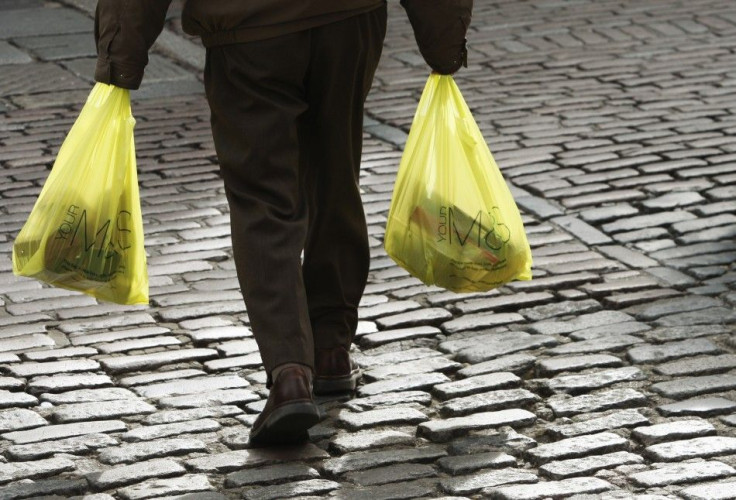Mauritania Cracks Down On A Silent Killer: Plastic Bags

Mauritania, a sparsely populated African country encompassing the western end of the Sahara Desert, has banned the use and production of plastic bags in an effort to cut down on harmful pollution.
The news may come as some surprise, since Mauritania is many steps behind most of the world on other development issues. Slavery wasn’t made an official crime until 2007, and it is still being practiced today in rural areas. Maternal and infant mortality rates are high, with adequate health care sorely lacking in much of the vast country. Poverty is widespread, with about half the population living on less than $2 a day. Women’s rights have a very long way to go.
Against that backdrop, banning plastic bags may not seem like much. But the measure is expected to be beneficial, since discarded bags are much more than an eyesore.
Plastic bags, which may disintegrate into smaller pieces but are not biodegradable, become a threat to public health when discarded. They can end up contaminating human food with toxins. They can block drains and gum up sewage systems. When they hold water, they become a breeding zone for malarial mosquitos. And they often kill plants, wildlife or domestic animals.
One official in Mauritania’s environmental ministry told the BBC that 70 percent of the sheep and cattle that die in Nouakchott, the capital, are killed by consuming plastic bags.
The problem is especially bad in places like Mauritania and other developing countries where waste disposal practices are basic at best. Several other African countries have already passed laws banning or restricting plastic bag use, including Uganda, Rwanda, Tanzania, South Africa and Kenya.
The campaign to end the use of plastic bags is a global one -- it has picked up considerable steam over the last five years. The United National Environment Program has made plastic bags a major talking point. In a 2009 report on marine litter, UNEP Executive Director Achim Steiner said bluntly that “single use plastic bags, which choke marine life, should be banned or phased out rapidly everywhere --there is simply zero justification for manufacturing them anymore, anywhere.”
Africa is a fitting place to test out anti-plastic initiatives because of its countries’ comparative lack of development. Imagine cutting down on plastic bag use in highly industrialized nations like the United States, where supermarkets rarely offer other options and where households often have a cabinet stuffed with plastic bags that are too numerous to be reused.
Efforts are under way to restrict the use of plastic bags in several American cities, the biggest of which is Los Angeles. But a national ban in the United States or other industrialized countries would be a nightmare.
It’s something that Mauritania, on the other hand, which has a population of just 3.5 million that is mostly concentrated in the coastal capital, can probably handle.
All that remains is a question of enforcement. Mauritania has decreed that anyone using or producing plastic bags could face up to a year in prison. But if the country’s track record for responding to bigger issues -- like slave ownership -- is any indication, it may turn a blind eye to plastic bag violations. Alternatives, such as fabric sacks or the biodegradable bags being pushed by the United Nations, will have to be made readily available to the citizens of Nouakchott in order for Mauritania’s bold new initiative to work.
© Copyright IBTimes 2024. All rights reserved.






















